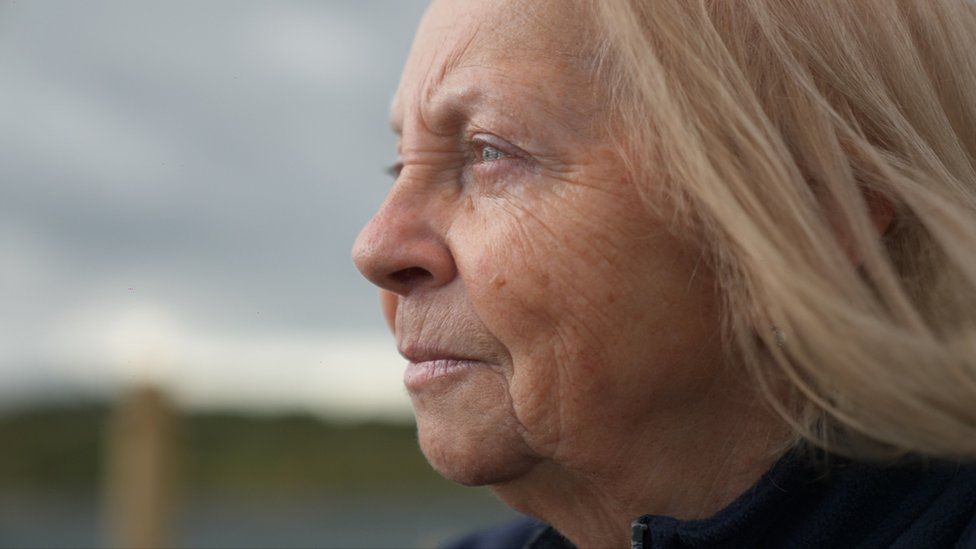ARTICLE AD BOX

Paula Conner says her husband would "be so upset" if ne knew how much his care bills cost
By Judith Burns & Katie Inman & Sam Francis
BBC News
A pensioner at risk of selling her home to support her husband's care has said she is "sickened" by the chancellor's plans to delay a cap on care costs.
Paula Conner, 75, told the BBC she pays £1200 a week for a care home for her husband Mick, 89, who has dementia.
A cap to limit lifetime care costs in England at £86,000 had been due to come into effect in October 2023, but has been delayed by two years.
"I don't know what will happen to my husband now," Mrs Conner told the BBC.
Chancellor Jeremy Hunt said money to support the cap will instead be given to councils "to deliver an estimated 200,000 more care packages over the next two years".
"That's the biggest increase in funding under any government, of any colour, in history," he said in his Autumn Statement on Thursday.
"How we look after our most vulnerable citizens is not just a practical issue, it speaks to our values as a society."
Mr and Mrs Conner were once pillars of the East Yorkshire farming community, keen to help others and hosting annual Christmas parties at their farm near Driffield.
But Mr Conner now lives in a Bridlington care home where dementia has made him "barely recognisable", says Mrs Conner.
After being admitted to hospital in March, struggling to breathe, Mr Conner's mental capacity declined sharply.
Mrs Conner said it took her four months to find a home able to cater for his needs, but believes her husband would be "aghast" if he knew the cost.
"He'd be so upset that, for all his hard work and how frugal he's been, it is just going on something like this," she said.
Image source, Family photo/BBC
Image caption,Mr and Mrs Conner worked together on their farm near Driffield
News of the cap being delayed has hit her hard: "We've grafted all our lives for this. It sickens me."
Mrs Conner says most of the homes she looked at were "dumps" and "absolutely atrocious and quite unsafe".
"That frightened me and there was no way I was going to let Mick go there," she said.
"I don't know what will happen to my husband now. Will he end up somewhere I don't want him to be?
"I may have to sell my home to keep him somewhere good."
Image source, Getty Images
Image caption,Planned changes to social care funding will now be introduced in October 2025
Currently most people in England who have savings or assets of more than £23,250 pay for all the care they need at home or in a care home.
Planned reforms would also have increased this means-tested threshold to £100,000, allowing people to keep much more of their money.
Sir Andrew Dilnot, who devised the policy more than a decade ago, called the delay "extraordinarily disappointing".
Sir Andrew first proposed it in 2011 to David Cameron's government following a year long investigation into funding of care and support.
This is the second time the care cap has been delayed. It was due to be introduced in 2015 when Jeremy Hunt was health and social care secretary, but was pushed back because of funding and staffing pressures on the care system.
The need for reform in social care as "critical and urgent", Sir Andrew said.
England's county councils had urged the government to push back the start date of the cap, warning of serious staffing and financial pressures on services.
The Local Government Association welcomed the delay, but said the funding "falls significantly short of the £13bn we have called for" to support social care services.
Labour's shadow chancellor, Rachel Reeves, described the announcement of a delay as "another broken promise after 12 years of Tory failure on social care".

 2 years ago
31
2 years ago
31








 English (US)
English (US)